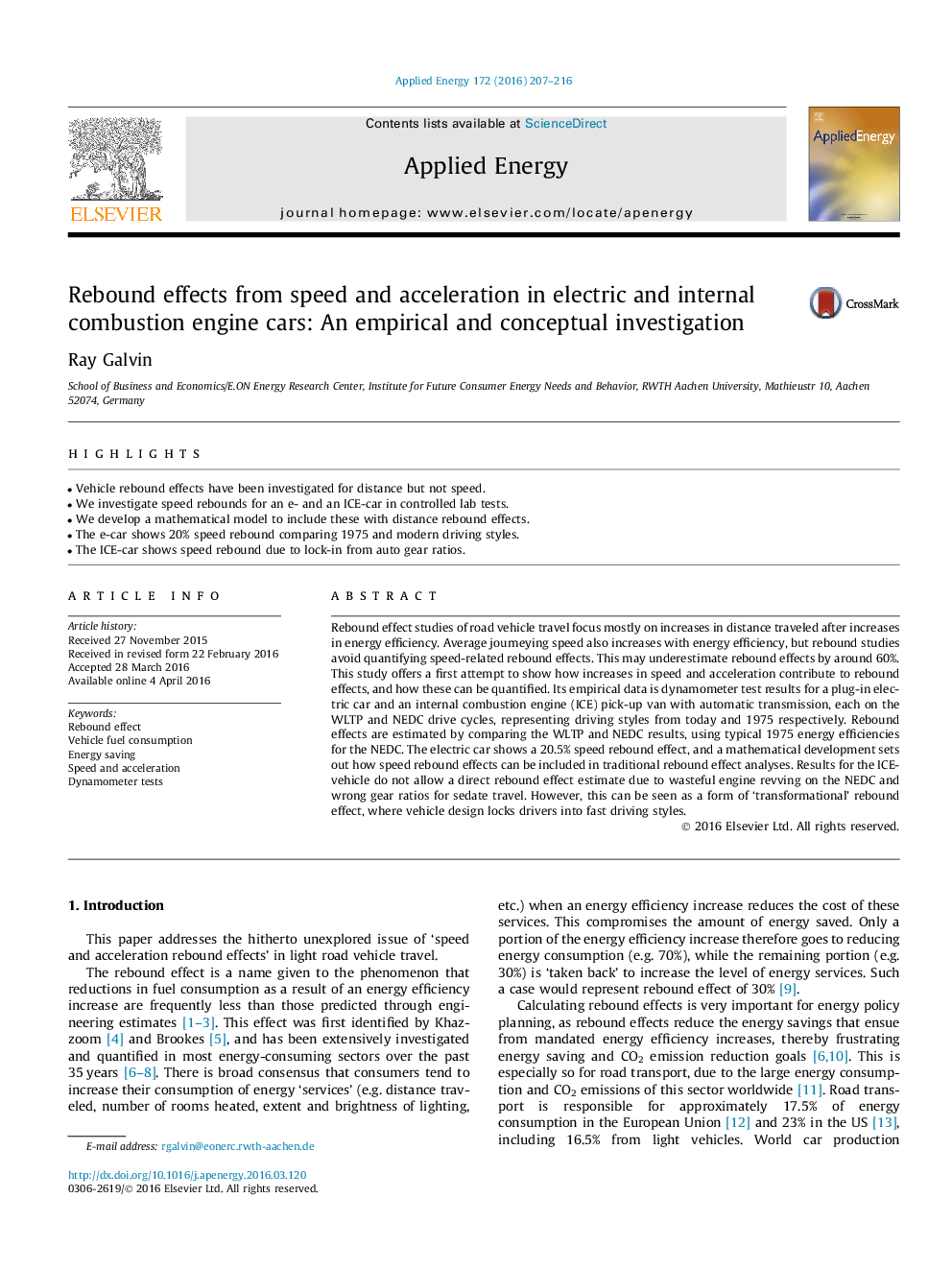| کد مقاله | کد نشریه | سال انتشار | مقاله انگلیسی | نسخه تمام متن |
|---|---|---|---|---|
| 6683240 | 501855 | 2016 | 10 صفحه PDF | دانلود رایگان |
عنوان انگلیسی مقاله ISI
Rebound effects from speed and acceleration in electric and internal combustion engine cars: An empirical and conceptual investigation
ترجمه فارسی عنوان
اثرات بازگشتی از سرعت و شتاب در خودروهای موتور احتراق الکتریکی و داخلی: یک تحقیق تجربی و مفهومی
دانلود مقاله + سفارش ترجمه
دانلود مقاله ISI انگلیسی
رایگان برای ایرانیان
کلمات کلیدی
تأثیر بازتاب، مصرف سوخت خودرو، ذخیره انرژی، سرعت و شتاب، تست دینامومتر،
موضوعات مرتبط
مهندسی و علوم پایه
مهندسی انرژی
مهندسی انرژی و فناوری های برق
چکیده انگلیسی
Rebound effect studies of road vehicle travel focus mostly on increases in distance traveled after increases in energy efficiency. Average journeying speed also increases with energy efficiency, but rebound studies avoid quantifying speed-related rebound effects. This may underestimate rebound effects by around 60%. This study offers a first attempt to show how increases in speed and acceleration contribute to rebound effects, and how these can be quantified. Its empirical data is dynamometer test results for a plug-in electric car and an internal combustion engine (ICE) pick-up van with automatic transmission, each on the WLTP and NEDC drive cycles, representing driving styles from today and 1975 respectively. Rebound effects are estimated by comparing the WLTP and NEDC results, using typical 1975 energy efficiencies for the NEDC. The electric car shows a 20.5% speed rebound effect, and a mathematical development sets out how speed rebound effects can be included in traditional rebound effect analyses. Results for the ICE-vehicle do not allow a direct rebound effect estimate due to wasteful engine revving on the NEDC and wrong gear ratios for sedate travel. However, this can be seen as a form of 'transformational' rebound effect, where vehicle design locks drivers into fast driving styles.
ناشر
Database: Elsevier - ScienceDirect (ساینس دایرکت)
Journal: Applied Energy - Volume 172, 15 June 2016, Pages 207-216
Journal: Applied Energy - Volume 172, 15 June 2016, Pages 207-216
نویسندگان
Ray Galvin,
